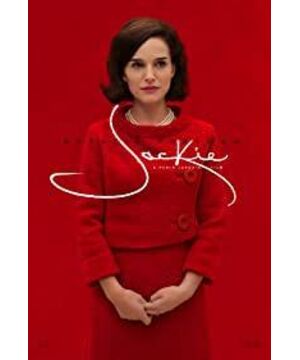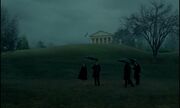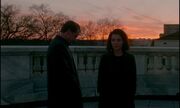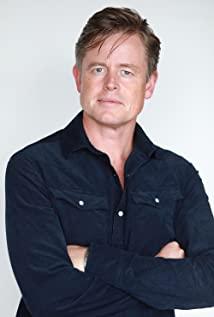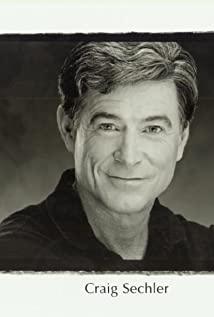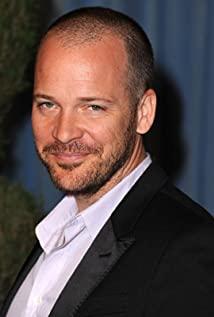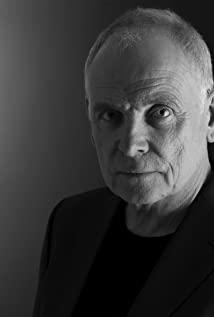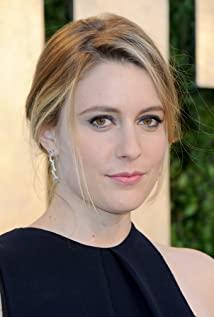If dramas are generally the reason a person likes movies, biopics are generally a must for advanced fans, at least for me. When Mr. Shi Hang was invited to do a movie salon, the theme of the movie he designated was biopics. There were three movies: Queen, Dialogue with Nixon, and Biography of Gandhi. Although there were some gains at the time, the overall viewing experience was still foggy. Later, I always felt that the threshold for biopics was quite high. I have seen biopics such as Iron Maiden and Mozart since then, and they have always been the kind of deja vu. In fog. Later, I started to record the movies I watched, and I came across the first lady. After watching it, I felt that I still haven't advanced...
1. Plot: N lines go hand in hand, which is in line with one of the characteristics of uploading a documentary in my opinion, that is, the play is meticulous and meticulous. According to the amount of ink, they are a series of events that Mrs. Kennedy participated in after the assassination of Kennedy, Mrs. Kennedy was interviewed by reporters, Mrs. Kennedy once filmed a documentary about the White House, and Mrs. Kennedy talked with the priest. And each has an ending at the end (no wonder I think the ending of the movie is very long... From the real beginning of the funeral, it is about 75 minutes after the movie realizes "Hey, is it going to end?", and it's about ten after the final dance ending. Five minutes, each line has its own ending with a different theme, and there are two or three paragraphs in each of the cross-editing, which gives me the feeling that it is too procrastinated and disliked). This film involves a lot of aspects, some are discussed in one line, such as religion (priest line), news authenticity (reporter line), and some are discussed in the whole film, such as history (or evaluation of historical figures) , who wrote the history), the marriage (or love) of the Kennedy couple, the significance of the White House building to the United States, and a core conflict point is whether the presidential funeral should be in the form of a parade or by car. But to be honest, I don't particularly understand the interpretation of these in the film. I use my shallow understanding to interpret Mrs. Kennedy's two changes of mind:
The reasons for insisting on the parade for the first time: First, Kennedy loves ballots more than decoration, so there is no need for extravagance, but it must pass; second, it is to make people remember, "A big beautiful procession that people will remember"; but later she said that at this time The persistence is vanity.
The second time she switched to a car was because the assassin was killed, which made her feel that her security capabilities were not enough to protect the children, so she decided to take a car instead;
The third time I decided to go back to the parade happened when Bobby said that history is cruel and we still have a lot to do. After that, Mrs. Kennedy packed up the White House (throwing the doll and the baby broke her foot), took off the ring, and decided to go to the parade (why are you doing this, Mrs. Kennedy? It feels like it should express the voices of many viewers who think Mrs. Kennedy did it. But I can understand her wish that politicians also participate in the parade. It is not necessary, but I am not afraid of threatening to participate in the parade. The bravery involved is also a respect for President Kennedy and a response to the assassins, so Mrs. Kennedy's request for dignitaries to participate is justified and cannot be counted. But it does contain selfishness. In her conversation with reporters later, she Confession: This is the funeral of an American president, that is, there should be more people, more horses, more soldiers, more crying and cameras. It can be seen that she still hopes to use this method to let everyone remember her husband. ), just didn't see the event that prompted her to change her decision.
I think the problem with Mrs. Kennedy was that she wanted President Kennedy to be as respected and remembered as President Lincoln, but got the causal relationship wrong: President Lincoln was honored for his achievements in winning the Civil War and freeing slaves. To be remembered, not because of the way he was buried, President Kennedy would not have been as honored as Lincoln without such a feat. From the first time Mrs. Kennedy paid attention to the funeral method (asked the driver if she knew about the three assassinated presidents, and asked to know about the funeral method of Lincoln after learning that she only knew about Lincoln), she got the cause and effect wrong, the ultimate goal she wanted to achieve It was President Kennedy who was remembered. For this reason, she asked for a high-profile funeral, disregarding the security requirements for dignitaries from various countries to march with her to say goodbye to the president, but these did not necessarily lead to Kennedy being evaluated as a great president. Kennedy's achievements in office can determine him. The historical evaluation of , which is in line with Bobby's (we just look polished...what did we really get?...we could have done a lot, civil rights, space program...history is cruel, see you soon know...). Mrs. Kennedy's second mistake was that she said that a president of the United States should have more people, more horses, etc. This sentence has no causal relationship, but it does not meet her ultimate that President Kennedy will be remembered The goal can only be said to be her selfishness as a wife. She also knows that this kind of thinking is disgraceful, so she asked the reporter not to write the interview. Later, when I talked to the priest, I said another motive, that is, she hoped that someone would end her life in the procession. This reason... is also quite ridiculous.
Talk about other topics:
(1) Kennedy couple relationship: Women have been doing far worse for far less.—I think of him in the office, Caroline and John at his feet, how can I hate him—Take comfort in memories.—I can 't. They've mixed up with all the others.
(2) The ideal of President Kennedy: Camelot."Don't let it be forgot that for one brief shining moment. There was a Camelot."King Arthur and the Knights of the Round Table—ordinary men banding together to fight for a better world." He has ideals, and ideals will continue, but there will be no more Camelot."But there won't be another Camelot. Not another Camelot."
(3) Religion: The parable I don’t understand but it feels very powerful, probably means that what you are suffering now is not because you did something wrong, but to show a miracle (?) Right now you are blind, not because you' ve sinned, but because you've been chosen, so that the works of god may be revealed in you.
(4) The meaning of life: people will search for meaning at some point, and will eventually find that there is no answer. When cruel and inevitable, they either accept it or commit suicide, or they can only stop looking for it (the last paragraph of the priest’s words is really mysterious. And Xuan, it's very inexplicable, it's just pretending to be mysterious, the barrage says "No matter how you find an angle to write a script for a biographical movie, it's just like this", haha"); people need to know that there are real people who have lived here, not in the history books Ghost - what you're doing here makes a lot of sense.
(5) Bobby's words: Lincoln signed the document here to free the slaves. It is not peaceful here, but this rich legacy is wasted here. President Kennedy may be remembered for solving the Cuban Missile Crisis, or for causing some problems. Remembered for resolving the Cuban Missile Crisis. History is harsh, in no time. We just look polished? What did we truly accomplish? We could have done a lot, look at us, aren't we funny now?
(6) Mrs. Kennedy's introduction to the White House line: Compared with the current interview, she was gentle and shy at the time, and she needed an assistant to take care of everything. She had almost no self-awareness. Now she is sharper and wiser.
President Kennedy said at the end of the documentary that this documentary brings all the people who have lived here closer together and who share a common desire for America to be better, but they are just people who live here. With the president's voice as the background, Mrs. Kennedy turned her eyes away when she saw the new president and his wife discussing things in the White House.
Two functions; one is to highlight the changes of the president's wife; the other is to show the vicissitudes of life before and after the assassination of the president.
(7) I believe that the characters we read in books are more real than the people who live around them. I should have known that growing old together was too extravagant, and so was watching our children grow up.
(8) I never wanted fame, I just be a Kennedy.
2. Acting: I got the beauty of Natalie Portman from this film, and she acted very well. The barrage said two things, one was that she acted too hard, and I didn't feel that way; the other was that she was put together with Anne Hathaway and Keira Knightley, and I didn't feel the same. Similar to Keira Knightley's eyes.
3. Clothing: The clothing is great, the kind that I want to buy immediately after being planted by the little black dress and black high heels (the retro style of La La Land didn't make me want to have the craze right away...), The President's wife's dress and jewelry are extremely gorgeous. There is a scene where Mrs. Kennedy changed her dress while packing up the things at home. Those few minutes were a great treat for the eyes. There was a long dress, shot from the back, beautifully cut. , The red dress at the end of the dance is also very beautiful, I want to see a costume inventory in the movie.
View more about Jackie reviews


